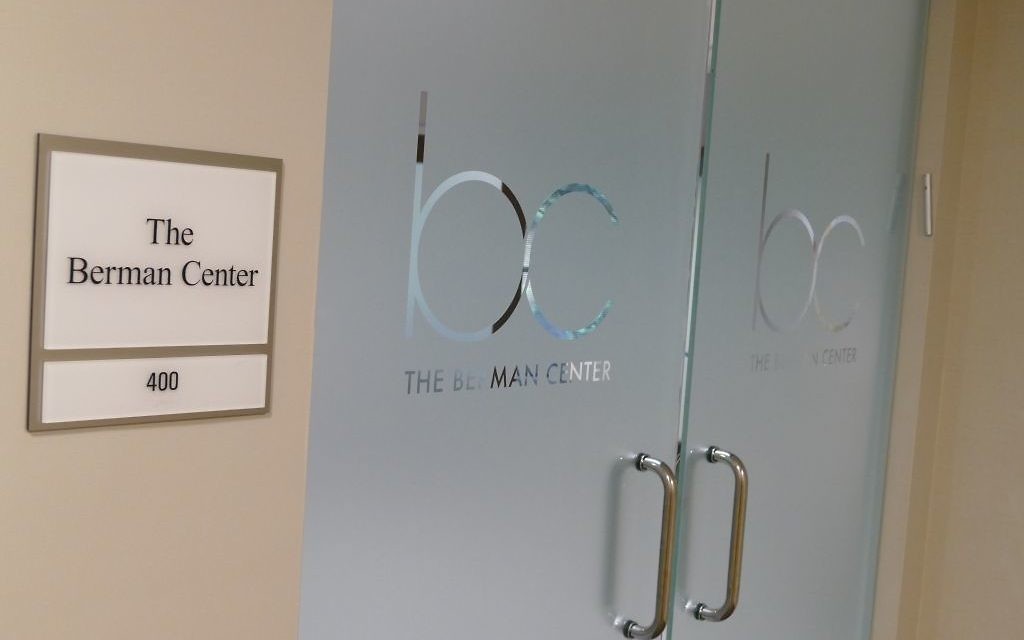The Depressing Loneliness of Social Media
Social media can’t replace a big hug, a warm smile and a great conversation.
If we are so connected through technology, why do people seem so lonely?
Connecting digitally is to in-person connection what reality TV is to reality.
Our brains didn’t evolve the past several million years on $800 tablets and smartphones. There is a measurable difference between our neurological responses to a digital simulation of an event vs. an actual event.
Get The AJT Newsletter by email and never miss our top stories Free Sign Up
Consider the difference between looking at vacation photos of the Grand Canyon and standing in front of it, with your feet on the dirt, inhaling the fresh air and watching the sunset while some large, creepy bird circles its prey in the distance.
The reality show and vacation photos are merely representations of experiences but not the full experiences. To the brain, social media are simply low-fi representations of socializing.
Humans are social creatures, and the technology within our smartphones is shockingly addictive. I could fill a book about the impact I have witnessed smartphones having on my young-adult clients and their families — but my attention span is too short now to sit and complete such a task. Thanks, “smart” phone.
What was I saying? Oh, yeah.
Many of my young-adult clients are demonstrating clinically significant impairments in their lives around their phones. Research consistently concludes phones are addictive: obsessive thought patterns and cravings; use that is more than intended; withdrawal symptoms; risky behaviors like texting while driving; and the creation of problems within family, social, academic and/or work domains.
In fact, the biggest difference I’ve noticed between drugs and tech is an iPhone costs only about $120 an ounce.
Being social animals, we find the greatest joys to be shared joys. This is based on the dopamine reward (and a few other neurochemicals and hormones) we get from socializing. An example is the excitement we get from hugging an old friend or the ding from a text notification. Hence, it feels like a bonus when we share special moments like concerts, vacations or photos of our experiences with others.
The issue I am calling attention to is the “fast food” conundrum: Convenience and efficiency increase at the potentially harmful cost of quality and health. It’s more efficient to call a friend than to visit her. It’s quicker to text than to call. And it’s certainly easier to fire off an emoji than to compose a complete sentence (insert eye-rolling emoji).
But the efficiency of a huggy emoji will never replace the mind/body experience of hugging a friend in a time of need. To be healthy, we need to experience face-to-face human interaction and to be good at it.
Another critical component of the depressive experiences associated with social media is comparison. Humans naturally compare; it’s a must for survival. How else would we know if the nearby beast is dinner or diner? We compare by instinct.
The problem is that a saber-tooth tiger at 100 yards is a real situation and deserves any emotions she may evoke, whereas the photo your old classmate posted of her iced coffee was meticulously selected from 483 others, then cropped, edited, filtered and retouched.
It is merely a representation of a caffeinated beverage, yet somehow you extrapolate it as evidence she lives some luxe life you will never achieve as a consequence of your tragically asymmetrical earlobes.
Experiencing intense emotions in response to the big cat is useful, but the other is not. Post after post and day after day, this comparison model will weigh down the best of us.
Ultimately, what seems to be making people lonelier is the illusion one can sit alone and experience a satisfying social life. Let’s recognize what’s really happening: We’re getting instantly gratifying hits of dopamine from the lights, sounds, vibrations and validations as a result of interacting with curated digital representations of acquaintances. We compare the mundane, momentary aspects of our lives with the highlight reels of others, and it’s bumming us out.
Social media are wonderful ways to stay in touch, especially to those spread over geographic distances, and they certainly are effective for brief interactions like scheduling plans. But social media can’t replace a big hug, a warm smile and a great conversation.
Please, go meet a friend or family member for coffee (phone in purse or bag), and catch up without feeling the need to broadcast it on social media. You might actually love it.
Daniel Epstein is a licensed psychotherapist and the program director at The Berman Center. For program or private practice inquires, email daniel@bermancenteratl.com, or call 954-228-5101. For individuals and families struggling with addiction and mental health illness, The Berman Center’s Intensive Outpatient Program (www.bermancenteratl.com) is the treatment, recovery and personal advancement center that helps people move from existing to living through an individualized, spiritually holistic approach, best-in-class clinical excellence, and exceptional post-treatment community integration programs. Finding hope, igniting purpose. For answers to your questions related to mental illness and addiction, call 770-336-7444, or email questions@bermancenteratl.com.





comments